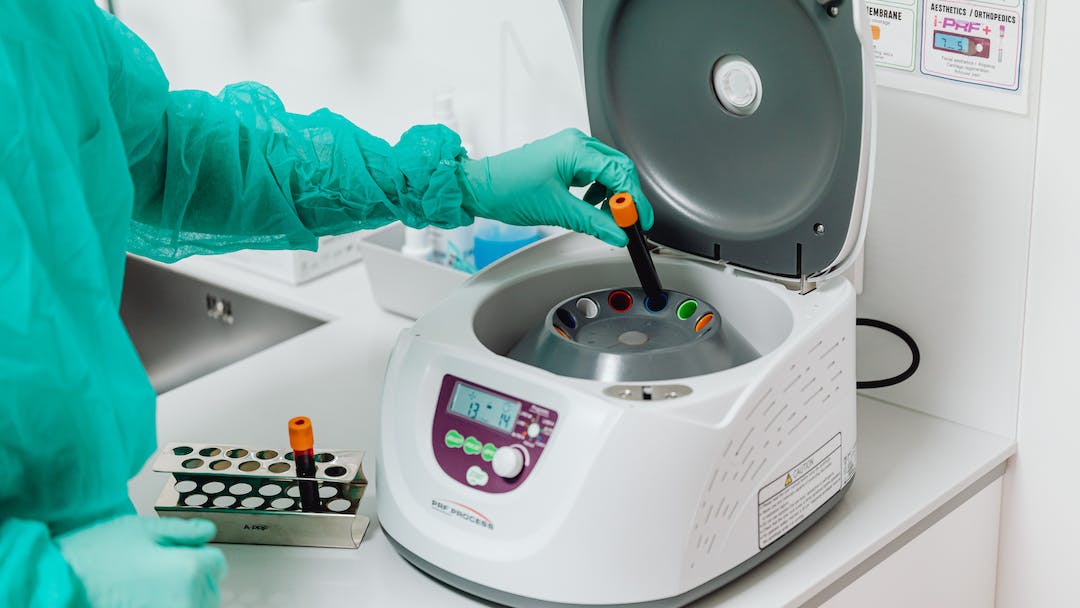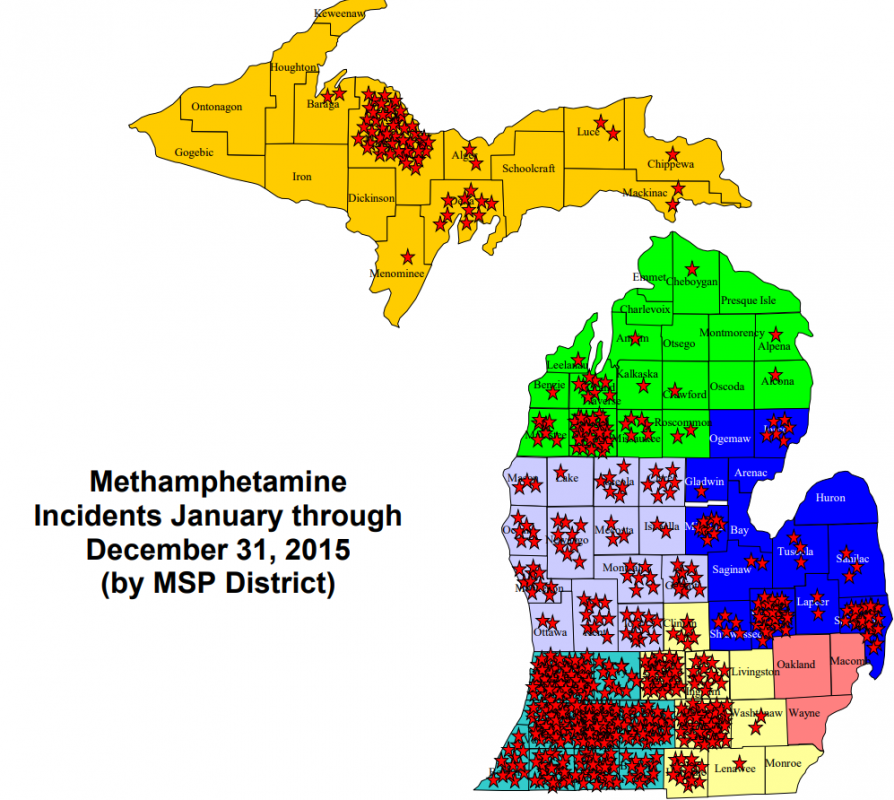Michigan Laws on Boating Under the InfluenceBoating is a fun activity, but it can be dangerous if the operator is under the influence of drugs or alcohol. Michigan law prohibits operating a motorboat while under the influence of drugs or alcohol. Boating Under the...

THC Detection in Blood: A Comprehensive Review
THC Detection in Blood: A Comprehensive Review
Tetrahydrocannabinol (THC), the main psychoactive compound in marijuana, can remain detectable in the blood for several days or even weeks after use. This is due to the fact that THC is highly fat-soluble, meaning that it dissolves easily in fat cells. Once THC is absorbed into the bloodstream, it is distributed throughout the body, including the fat cells. When THC reaches the brain, it binds to cannabinoid receptors, producing the intoxicating effects associated with marijuana use.
As the intoxicating effects of THC wear off, it is released from the brain and redistributed to other tissues, including the fat cells. THC can be stored in fat cells for weeks or even months, and it is released slowly back into the bloodstream over time. This means that a blood test for THC can detect past marijuana use, even if the individual is no longer under the influence.
Have you been charged with driving while high?
Want to fight that charge!
Call Our Office for a Free Case Evaluation
Factors that Affect THC Detection in Blood
A number of factors can affect how long THC remains detectable in the blood, including:
- Frequency of use: Chronic marijuana users tend to have higher THC blood levels than occasional users.
- Metabolism: Individuals with faster metabolisms tend to clear THC from their system more quickly.
- Body composition: Individuals with higher body fat percentages tend to have higher THC blood levels.
- Method of use: Different methods of marijuana use can result in different THC blood levels. For example, smoking marijuana tends to result in higher THC blood levels than eating marijuana.
Interpretation of THC Blood Test Results
It is important to note that THC blood levels do not necessarily correlate with impairment. Some individuals with high THC blood levels may not be impaired, while others with low THC blood levels may be impaired. Other factors, such as individual tolerance, route of administration, and time since use, can also play a role.
Additional Scientific Details
In addition to the information above, here are some additional scientific details about THC detection in blood:
- THC is metabolized by the liver into a number of different metabolites, including 11-hydroxy-THC (11-OH-THC). 11-OH-THC is more potent than THC and has a longer half-life, meaning that it remains in the body longer.
- The half-life of THC in the blood ranges from 1.3 to 13 days, depending on the individual’s metabolism and other factors.
- THC can be detected in blood using a variety of analytical methods, including gas chromatography-mass spectrometry (GC-MS) and liquid chromatography-mass spectrometry (LC-MS).
Future Research Directions
Additional research is needed to better understand the relationship between THC blood levels and impairment. Researchers are also working to develop new methods for detecting THC in blood that are more sensitive and specific.
Did You Know
Michigan State Police Legal Updates
MSP Legal Update No. 153 (01/2023)
- Search & Seizure: The smell of marihuana, standing alone, no longer constitutes probable cause to search for that substance
- Vehicle Code: Violation for impeding traffic requires evidence the accused’s conduct actually affected the normal flow of traffic.
Legal Update No. 153 (01/2023)
MSP Legal Update No. 150 (01/2022)
- Vehicle Code: Persons under the age of 21 may be prosecuted for operating a motor vehicle with the presence of marihuana in their system
- Criminal Law: Ethnic intimidation based on gender includes harassing or intimidating another person because of the actual or perceived gender of that person.
Legal Update No. 150 (01/2022)
Legal Update No. 148 (09/2021)
Legal Update No. 148 (09/2021)
Legal Update No. 147 (03/2021)
More Posts

Michigan Law on Boating Under the Influence

Client testimonies about their experience with the legal system
Komorn Law clients speak about their experience with the legal system Several of Komorn Law client's as well as other individuals have chosen to speak about their encounter with law enforcement, the legal system and how it has affected their lives, families and...

MICHIGAN MEDICAL MARIHUANA ACT – Section 4 Defense
Marijuana Criminal Defense Client with medical marijuana card was charged with marijuana possession. Client was assigned a court appointed lawyer and encouraged to plead guilty and accept 3 months of probation. Client hired Michael Komorn for representation and...

Michigan Methamphetamine Defense
Bill Schuette, the current Michigan Attorney General, is waging war against Meth users, dealers and labs. Innocent people get swept up with meth crimes when police run field tests on any powdery substances, frequently returning false positive results. Komorn...
Foster Care Agencies Allegedly Discriminated Against Poor, Medical Marijuana Patients
Two families -- including one mom who alleges Child Protective Services took her suckling baby from her breast -- are suing the state, alleging discrimination because they are medical marijuana users and poor. In the lawsuit, attorney Michael KOMORN alleges the...
MMMA-Profile-Michael-Komorn
Here are some links to articles posted by Attorney Michael Komorn US Government Collecting and Using Citizen Communications NATIONAL TOXICOLOGY PROGRAM Technical Report Series No. 446 (1996) Oral cannabis extracts as a promising treatment for the core...

Komorn Law – Victory in Genesee County
Komorn Law PLLC is proud to report a ruling today from the Genesee County Circuit Court. This case involved my client's property and all kinds of salacious allegations of really bad behavior by this property, and I mean bad stuff, like stuff you could never...

Komorn Law AVVO Ratings
KOMORN LAW AVVO - RATINGS Read Client AVVO Reviews

Komorn Law-In the News-Fox17
Komorn Law | In the News | Fox 17 News | Links Medical marijuana battle: Father fights for custody of son OTTAWA COUNTY, Mich. – Medical marijuana is a controversial, sometimes sticky issue, especially in Michigan. Max Lorincz is a father from Spring Lake who...
AVVO Ratings and Reviews Update Aug 2016
Michael Komorn’s reviews 5.0 stars - 23 Total Avvo Rating: 10.0 out of 10 Cases dismissed 5.0 stars Posted by Ryan August 24, 2016 I had two charges in Wayne county. I was facing 6 years in prison. Michael was very informative and reassuring...










